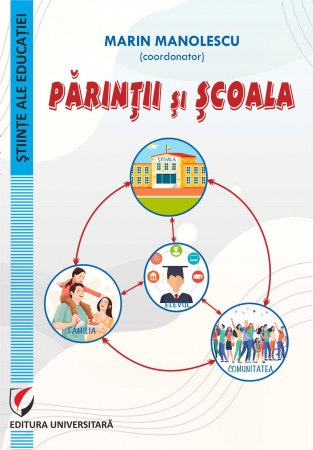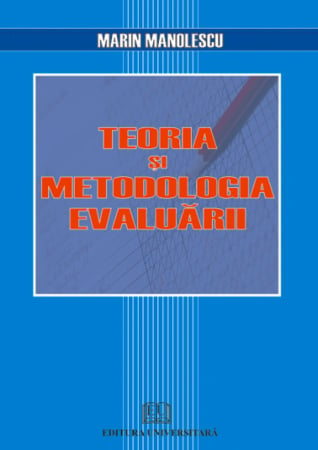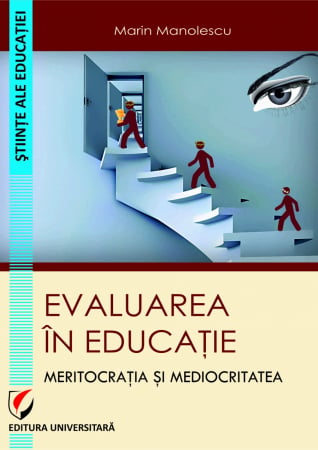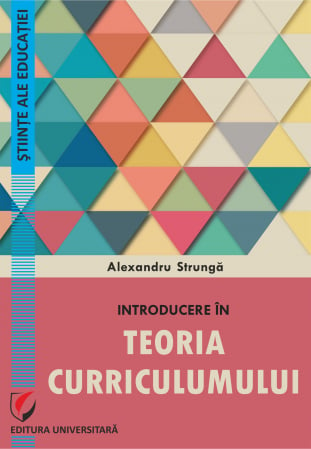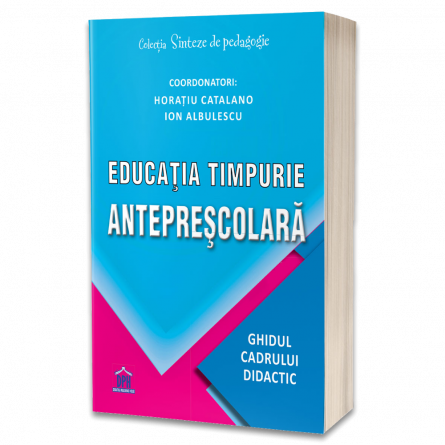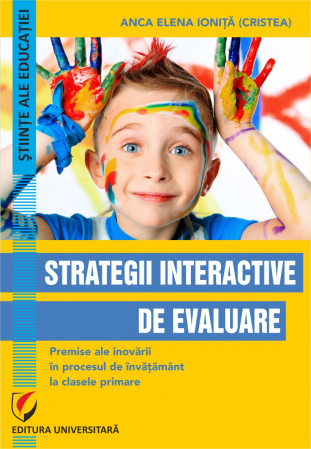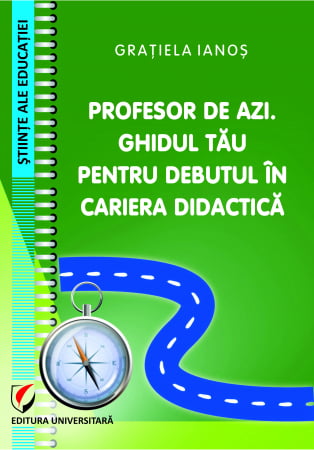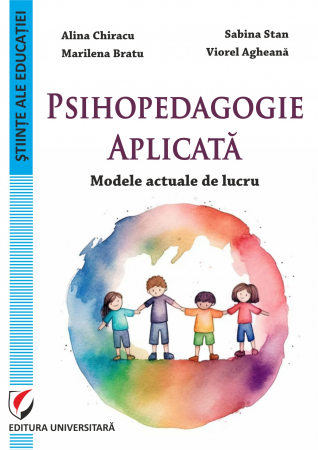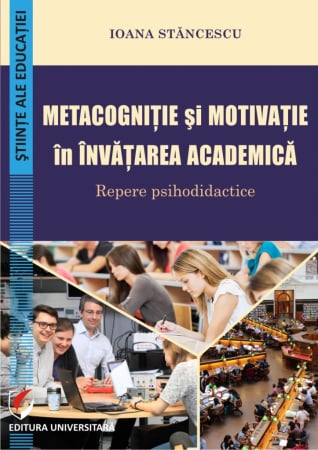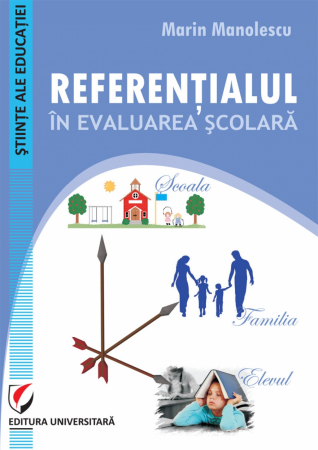Manuscript proposals: [email protected] / 0745 204 115 //// Tracking orders Individuals / Sales: 0745 200 357 / Orders Legal entities: 0721 722 783
6359.png) Sustainable development through the STEM approach to education and 21st century skills - Cristina Tripon
Sustainable development through the STEM approach to education and 21st century skills - Cristina Tripon
6359.png)
Publisher: Editura Universitară
Author: Cristina Tripon
Edition: I
Pages: 124
Publisher year: 2023
ISBN: 978-606-28-1622-3
DOI: https://doi.org/10.5682/9786062816223
Product Code:
9786062816223
Do you need help?
0745 200 357
- Description
- Download (1)
- Authors
- Content
- More details
- Reviews (0)
Organized around four main themes: 21st century competencies, STEM education, sustainability and sustainable education, the book begins by examining the importance of sustainable development and describing achievement indicators, by deciphering 21st century competencies and how they are related to sustainable development. It then analyzes the role of STEM education to enable the development of these skills and how educational practices can be approached for sustainable development. In the current framework, there are very few scientific resources that address these topics, the degree of originality being a generous one.
The book offers perspectives on existing educational contexts, providing a source of inspiration for those interested in developing new and innovative ways of teaching sustainability and 21st century skills. By exploring the ways in which these concepts have been applied in various contexts, readers can obtain valuable information about how they could be applied in new, educational contexts. This can contribute to the foundation of new approaches to teaching and assessment, as well as other research areas.
The book offers perspectives on existing educational contexts, providing a source of inspiration for those interested in developing new and innovative ways of teaching sustainability and 21st century skills. By exploring the ways in which these concepts have been applied in various contexts, readers can obtain valuable information about how they could be applied in new, educational contexts. This can contribute to the foundation of new approaches to teaching and assessment, as well as other research areas.
-
Sustainable development through the STEM approach to education and 21st century skills
Download
CRISTINA TRIPON
ARGUMENT / 7
SUSTAINABLE DEVELOPMENT / 11
Sustainable development as a complex approach / 11
Objectives of sustainable development (ODD) / 14
ODD1: Eradication of poverty, everywhere, in any form / 14
ODD2: Eradicating hunger, achieving food security, balanced nutrition and sustainable agriculture / 15
ODD3: Ensuring health and promoting well-being, at all ages / 16
ODD4: Ensuring everyone's access to quality education and promoting lifelong learning / 17
ODD5: Achieving gender equality / 19
ODD 6: Ensuring access to water and hygiene / 20
ODD7: Ensuring everyone's access to sustainable and modern energy, at affordable prices / 22
ODD8: Promoting sustainable economic growth for all, jobs and decent working conditions / 23
ODD9: Building resilient infrastructure, promoting sustainable industrialization and stimulating innovation / 25
ODG10: Reducing inequality within and between countries / 26
ODD11: Cities for all, safe, resilient and sustainable / 27
ODD12: Ensuring sustainable models of consumption and production / 28
ODD13: Urgent action to combat climate change and its negative impact / 30
SDG14: Conservation and sustainable use of oceans, seas and marine resources / 31
SDG 15: Sustainable management of forests, combating desertification, stopping and remedying soil degradation, stopping the loss of biodiversity / 32
SDG16: Promoting fair, pacifist societies for the integration of all / 34
ODD17: Revitalizing the global partnership for sustainable development / 35
SUSTAINABLE EDUCATION (ODD4) / 37
Sustainable education, the basis of sustainable development / 37
Sustainable education through investment in the sustainable training of teachers / 38
The role of schools and teachers in sustainable development / 39
The role of universities in sustainable education, as part of sustainable development / 43
COMPETENCES OF THE XXI CENTURY / 45
Critical thinking / 46
Competent collaboration of the XXI century / 65
Problem solving / 73
THE STEM APPROACH TO EDUCATION AND THE RELATIONSHIP WITH THE OBJECTIVES OF SUSTAINABLE DEVELOPMENT / 92
The STEM (science, technology, engineering and mathematics) approach to education in the context of sustainable development objectives / 92
The STEM approach (science, technology, engineering and mathematics) and the relationship with the skills of the 21st century / 103
BIBLIOGRAPHICAL REFERENCES / 109
SUSTAINABLE DEVELOPMENT / 11
Sustainable development as a complex approach / 11
Objectives of sustainable development (ODD) / 14
ODD1: Eradication of poverty, everywhere, in any form / 14
ODD2: Eradicating hunger, achieving food security, balanced nutrition and sustainable agriculture / 15
ODD3: Ensuring health and promoting well-being, at all ages / 16
ODD4: Ensuring everyone's access to quality education and promoting lifelong learning / 17
ODD5: Achieving gender equality / 19
ODD 6: Ensuring access to water and hygiene / 20
ODD7: Ensuring everyone's access to sustainable and modern energy, at affordable prices / 22
ODD8: Promoting sustainable economic growth for all, jobs and decent working conditions / 23
ODD9: Building resilient infrastructure, promoting sustainable industrialization and stimulating innovation / 25
ODG10: Reducing inequality within and between countries / 26
ODD11: Cities for all, safe, resilient and sustainable / 27
ODD12: Ensuring sustainable models of consumption and production / 28
ODD13: Urgent action to combat climate change and its negative impact / 30
SDG14: Conservation and sustainable use of oceans, seas and marine resources / 31
SDG 15: Sustainable management of forests, combating desertification, stopping and remedying soil degradation, stopping the loss of biodiversity / 32
SDG16: Promoting fair, pacifist societies for the integration of all / 34
ODD17: Revitalizing the global partnership for sustainable development / 35
SUSTAINABLE EDUCATION (ODD4) / 37
Sustainable education, the basis of sustainable development / 37
Sustainable education through investment in the sustainable training of teachers / 38
The role of schools and teachers in sustainable development / 39
The role of universities in sustainable education, as part of sustainable development / 43
COMPETENCES OF THE XXI CENTURY / 45
Critical thinking / 46
Competent collaboration of the XXI century / 65
Problem solving / 73
THE STEM APPROACH TO EDUCATION AND THE RELATIONSHIP WITH THE OBJECTIVES OF SUSTAINABLE DEVELOPMENT / 92
The STEM (science, technology, engineering and mathematics) approach to education in the context of sustainable development objectives / 92
The STEM approach (science, technology, engineering and mathematics) and the relationship with the skills of the 21st century / 103
BIBLIOGRAPHICAL REFERENCES / 109
Sustainable development is an economic, environmental and social approach to development that meets the needs of the present without compromising the ability of future generations to meet their own needs. It is based on the principles of equity, social justice and environmental management. Sustainable education is an approach to teaching, learning and research that promotes the understanding of sustainable development and encourages the adoption of sustainable practices. It focuses on understanding the interdependence of human and natural systems as well as the relationships between them.
Sustainable development and sustainable education are closely related in that both aim to create a better world for future generations. Sustainable development focuses on the development of resilient economic, social and environmental systems capable of meeting the needs of current and future generations. By understanding these issues and their implications, individuals can become more aware of their own impact on the environment and make efforts to reduce their own carbon footprint. Also, sustainable education can provide individuals with the necessary skills to develop sustainable solutions to these challenges, such as reducing waste, increasing energy efficiency and using renewable energy sources.
Sustainable development is an essential part of the future, and sustainable education is a key element to achieve this goal. This book on sustainable development in relation to sustainable education can be a first step in helping readers understand the necessary components of a successful sustainable development plan. The book provides a comprehensive overview of the various strategies and tools needed to create a sustainable educational environment, while offering an insight into the wider implications of sustainable development on society.
STEM education is a complex approach to education that integrates the fields of science, technology, engineering and mathematics. This is based on the idea that learning in each of these areas reinforces each other and can be used to solve complex problems. STEM education is closely aligned with the principles of sustainable development and represents an important part of promoting sustainable practices. STEM education can provide students with the knowledge, attitudes, skills and values necessary to understand the complex relationships between people, the environment and technologies. Students who are exposed to the STEM educational approach are more likely to develop an understanding of the importance of sustainable practices and to become more involved in their local and global communities (Leal Filho, Shiel, 2019).
Sustainable education is an important concept that is becoming more and more popular as the world faces an uncertain future. By combining the concepts of the STEM (science, technology, engineering and mathematics) educational approach with 21st century competencies, it is possible to contribute to the development of young people regarding the skills (in a general sense) needed to thrive in a rapidly changing world.
Sustainable education aims to prepare individuals to live sustainably in a rapidly changing world. It also encourages individuals to become responsible global citizens. To ensure that sustainable education is effective, teachers must be properly trained: to learn how to create lesson plans that cover topics such as climate change, resource conservation and renewable energy, to be able to engage students in conversations significant information about these subjects and to be able to evaluate, being absolutely necessary to know the current sustainability initiatives and to be able to offer students concrete examples of their implementation.
To succeed in the 21st century, students must be able to use technology and apply the knowledge they acquire in STEM courses. By gaining a deeper understanding of science and math, students can use their knowledge to make informed decisions, create innovative solutions, and better understand the world. In addition, STEM education is essential for developing the skills needed to succeed in the labor market, such as the ability to think critically, solve problems, and work collaboratively.
The competences of the 21st century are essential for sustainable education and for STEM education. These competencies encompass a wide range of resources and learning styles, such as problem solving, collaboration, communication, creativity, critical thinking and global awareness. All these skills are essential for success in the 21st century and can be developed through a variety of educational approaches. STEM education is based on problem solving, critical thinking and collaboration and encourages students to think and come up with creative solutions to become innovators.
This book offers a basic exploration of the anchor arguments and possible approaches for adding sustainable education to the classroom, so that students are better prepared to face the challenges of the 21st century. In addition, it provides a succinct overview of the skills needed to succeed in the 21st century, such as collaboration, problem solving and critical thinking. Offering a basic look at how these concepts can best be incorporated in the classroom, along with the relationship with the objectives of sustainable development and the STEM educational approach, this book can be a useful resource both for teachers, especially for a transdisciplinary approach to the contents, as well as for parents, as an integral part of the support offered to their own children regarding the interest in science, technology, engineering and mathematics, day by day.
Sustainable development and sustainable education are closely related in that both aim to create a better world for future generations. Sustainable development focuses on the development of resilient economic, social and environmental systems capable of meeting the needs of current and future generations. By understanding these issues and their implications, individuals can become more aware of their own impact on the environment and make efforts to reduce their own carbon footprint. Also, sustainable education can provide individuals with the necessary skills to develop sustainable solutions to these challenges, such as reducing waste, increasing energy efficiency and using renewable energy sources.
Sustainable development is an essential part of the future, and sustainable education is a key element to achieve this goal. This book on sustainable development in relation to sustainable education can be a first step in helping readers understand the necessary components of a successful sustainable development plan. The book provides a comprehensive overview of the various strategies and tools needed to create a sustainable educational environment, while offering an insight into the wider implications of sustainable development on society.
STEM education is a complex approach to education that integrates the fields of science, technology, engineering and mathematics. This is based on the idea that learning in each of these areas reinforces each other and can be used to solve complex problems. STEM education is closely aligned with the principles of sustainable development and represents an important part of promoting sustainable practices. STEM education can provide students with the knowledge, attitudes, skills and values necessary to understand the complex relationships between people, the environment and technologies. Students who are exposed to the STEM educational approach are more likely to develop an understanding of the importance of sustainable practices and to become more involved in their local and global communities (Leal Filho, Shiel, 2019).
Sustainable education is an important concept that is becoming more and more popular as the world faces an uncertain future. By combining the concepts of the STEM (science, technology, engineering and mathematics) educational approach with 21st century competencies, it is possible to contribute to the development of young people regarding the skills (in a general sense) needed to thrive in a rapidly changing world.
Sustainable education aims to prepare individuals to live sustainably in a rapidly changing world. It also encourages individuals to become responsible global citizens. To ensure that sustainable education is effective, teachers must be properly trained: to learn how to create lesson plans that cover topics such as climate change, resource conservation and renewable energy, to be able to engage students in conversations significant information about these subjects and to be able to evaluate, being absolutely necessary to know the current sustainability initiatives and to be able to offer students concrete examples of their implementation.
To succeed in the 21st century, students must be able to use technology and apply the knowledge they acquire in STEM courses. By gaining a deeper understanding of science and math, students can use their knowledge to make informed decisions, create innovative solutions, and better understand the world. In addition, STEM education is essential for developing the skills needed to succeed in the labor market, such as the ability to think critically, solve problems, and work collaboratively.
The competences of the 21st century are essential for sustainable education and for STEM education. These competencies encompass a wide range of resources and learning styles, such as problem solving, collaboration, communication, creativity, critical thinking and global awareness. All these skills are essential for success in the 21st century and can be developed through a variety of educational approaches. STEM education is based on problem solving, critical thinking and collaboration and encourages students to think and come up with creative solutions to become innovators.
This book offers a basic exploration of the anchor arguments and possible approaches for adding sustainable education to the classroom, so that students are better prepared to face the challenges of the 21st century. In addition, it provides a succinct overview of the skills needed to succeed in the 21st century, such as collaboration, problem solving and critical thinking. Offering a basic look at how these concepts can best be incorporated in the classroom, along with the relationship with the objectives of sustainable development and the STEM educational approach, this book can be a useful resource both for teachers, especially for a transdisciplinary approach to the contents, as well as for parents, as an integral part of the support offered to their own children regarding the interest in science, technology, engineering and mathematics, day by day.
If you want to express your opinion about this product you can add a review.
write a review

![Sustainable development through the STEM approach to education and 21st century skills - Cristina Tripon [0] Sustainable development through the STEM approach to education and 21st century skills - Cristina Tripon [0]](https://gomagcdn.ro/domains/editurauniversitara.ro/files/product/medium/dezvoltarea-durabila-prin-abordarea-stem-a-educatiei-si-a-competentelor-secolului-xxi-796507.jpg)
![Sustainable development through the STEM approach to education and 21st century skills - Cristina Tripon [1] Sustainable development through the STEM approach to education and 21st century skills - Cristina Tripon [1]](https://gomagcdn.ro/domains/editurauniversitara.ro/files/product/medium/dezvoltarea-durabila-prin-abordarea-stem-a-educatiei-si-a-competentelor-secolului-xxi-cristina-tripon-367920.jpg)
![Sustainable development through the STEM approach to education and 21st century skills - Cristina Tripon [1] Sustainable development through the STEM approach to education and 21st century skills - Cristina Tripon [1]](https://gomagcdn.ro/domains/editurauniversitara.ro/files/product/large/dezvoltarea-durabila-prin-abordarea-stem-a-educatiei-si-a-competentelor-secolului-xxi-796507.jpg)
![Sustainable development through the STEM approach to education and 21st century skills - Cristina Tripon [2] Sustainable development through the STEM approach to education and 21st century skills - Cristina Tripon [2]](https://gomagcdn.ro/domains/editurauniversitara.ro/files/product/large/dezvoltarea-durabila-prin-abordarea-stem-a-educatiei-si-a-competentelor-secolului-xxi-cristina-tripon-367920.jpg)

